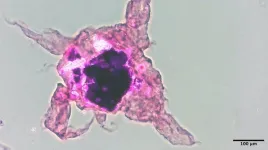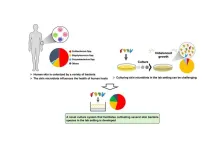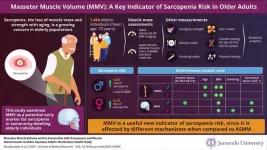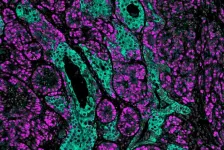(Press-News.org) Recycled pacemakers can function as well as new devices, a University of Michigan-led study suggests.
These used and reconditioned devices have the potential to increase access to pacemaker therapy in low- and middle-income countries, where many patients cannot afford the treatment.
Researchers from the U-M Health Frankel Cardiovascular Center reported the findings as a late-breaking abstract at the 2024 American Heart Association Scientific Sessions.
The international clinical trial involved nearly 300 people across seven countries in Africa, North and South America.
It compared the function and safety of reconditioned pacemakers to new devices, with patients randomly assigned one or the other.
Investigators found no significant differences in pacemaker function up to 90 days after the procedure.
Just five patients developed localized pocket infections at the site where the pacemaker was implanted, three of whom had initially received new devices.
Three deaths occurred in the group with reconditioned pacemakers, but none were related to the implantation procedure, device infection or malfunction.
“These positive early results bring us closer to the reality of a large-scale pacemaker donation and reconditioning that could save lives across the globe,” said principal investigator Thomas C. Crawford, M.D., a cardiac electrophysiologist at the Frankel Cardiovascular Center.
“Unlike in the United States, pacemaker therapy is often not available or affordable for people in low- and middle-income countries. Our program is determined to change that.”
It has been estimated that hundreds of thousands of individuals from around the world die from lack of a pacemaker, typically in countries with limited resources.
While implanting a recycled pacemaker is not legal in the U.S., the Food and Drug Administration does allow refurbished devices to be exported.
The “My Heart Your Heart” program began sending reconditioned pacemakers abroad in 2010 for cases of compassionate use, in which there is no alternative to treat a life threatening cardiac condition.
The refurbished devices either come from deceased individuals or those who need a pacemaker upgrade to a device with more advanced functions.
The U-M team sorts and interrogates recycled pacemakers, only reconditioning those that have more than four years of battery life.
The devices are reprocessed in a joint laboratory with World Medical Relief in Southfield, Mich., and Northeast Scientific, Inc., re-sterilizes them free of charge in Connecticut.
Many of the pacemakers come from Implant Recycling, LLC, a Michigan environmental and recycling company that services the crematory and cemetery industries.
The program has received donations from funeral homes in all 50 states.
This idea is more than a decade in the making, with each step carefully studied, said co-author Kim A. Eagle, M.D., founder of the program and a director of the Frankel Cardiovascular Center.
“We started with the beliefs and attitudes of patients, families, physicians and funeral home directors. The process of proper extraction, analysis of function, sterilization, packaging and ultimate implantation and follow-up has been rigorously sought. We have created a published roadmap, if you will, of how other centers and partners in the world can join is this most worthy cause.”
The Michigan-led team plans to continue follow-up with participants to determine the long-term safety and efficacy of recycled pacemakers.
The longevity of new pacemakers varies depending on how much the patient is using it but usually exceeds 10 years.
“It is imperative that we move forward with this research and determine the optimal way to reduce the gap in access to lifesaving pacemaker therapy,” Crawford said.
“The three-month outcomes are encouraging, but the six- and 12-month outcomes will be vital in understanding whether, with the exception of battery life, the reprocessed pacemakers can function like new ones.”
The research has been supported by the Frankel Cardiovascular Center, grateful patients and donors and a number of foundations. Inquire about pacemaker donations.
Additional authors: Eric Puroll, Eva Kline-Rogers, N.P., Patricia Bruenger, Chih-Wen Pai, Ph.D., MSPH, Constantina Alexandris-Souphis, R.N., B.S.N., AJ Hale, M.B.A., Ed Goldman, J.D., Hakan Oral, M.D., all of University of Michigan. Outside authors: Azorena Aponte, Vicente Finizola, M.D., Maria Milagro Arends, M.D., Eusevio Arends, M.D., Hector Monasterios, M.D., Emmanuel Edafe, M.D., Adrian Ebner, M.D., Ceci Martinez, M.D., Oluwaseye Oladimeji, M.D., Mahmoud Sani, M.D., Constantine Akwanalo, M.D., Jorge Bahena, M.D., Edgar Carrizales, M.D., Albertino Damasceno, M.D., James Russell, M.D., Joel Dunning, M.D., George Samson, Ph.D., Noah Klugman, Ph.D., Lane Powel, J.D., Sheldon Davis, M.S., Marion Davis, Craig Allmendinger and Brad Wasserman.
END
Recycled pacemakers function as well as new devices, international study suggests
The research aims to reduce the gap in access to lifesaving pacemaker therapy across the globe
2024-11-20
ELSE PRESS RELEASES FROM THIS DATE:
Researchers eliminate the gritty mouth feel: How to make it easier to eat fiber-rich foods
2024-11-20
Fiber is something that most of us get far too little of. To change that, we need to actually enjoy eating it. Food researchers from the University of Copenhagen have now invented a "disguise" that solves the problem of the dry and gritty mouth feel of fibers.
Think of how it would be to drink a juice with wheat bran in it – you may imagine an unpleasant gritty sensation which would make you less prone to enjoy it.
Unfortunately, this feeling is often associated with insoluble dietary fibers. ...
An innovative antibiotic for drug-resistant bacteria
2024-11-20
Antibacterial drugs are important for treating infections. But increasingly, bacterial resistance to current drugs — so they don’t work well, or even at all — means new ones are urgently needed. Building on previous work, researchers in ACS Infectious Diseases have demonstrated a potential antibacterial treatment from a modified darobactin, a compound originally from a bacterium. The team reports proof-of-concept animal trials on infections caused by bacteria, including E. coli, that are known to develop drug resistance.
This study was published during the World Health Organization’s World Antimicrobial Resistance (AMR) Awareness ...
Garden produce grown near Fayetteville works fluorochemical plant contains GenX, other PFAs
2024-11-20
Residential garden produce grown near the Fayetteville Works fluorochemical plant can expose those who consume it to per- and polyfluoroalkyl substances (PFAS), according to a new study conducted by researchers from North Carolina State University, East Carolina University and the Colorado School of Mines.
“It is often assumed that contaminated drinking water is the main pathway through which we are exposed to PFAS,” says Detlef Knappe, professor of civil, construction, and environmental engineering at NC State and a lead investigator of the study. “An important goal of our study was to determine whether people ...
CMU-Africa expands digital public infrastructure initiative across the continent
2024-11-20
Carnegie Mellon University Africa announced today that it will expand its digital public infrastructure initiative across the continent. Called the Upanzi Network, this Africa-based collaboration of engineering research labs will work toward a secure and resilient digital transformation by focusing on innovation across the entire pipeline of open standard technologies for the public good.
The initiative was launched in 2021 with the creation of a research laboratory at CMU-Africa in Kigali, Rwanda. Since its launch, the laboratory has made progress in capacity building, knowledge transfer, and digital public infrastructure governance and deployment. It performs research in ...
Study calls for city fashion waste shakeup
2024-11-20
With most donated clothes exported or thrown away, experts are calling for a shakeup of how we deal with the growing fashion waste issue.
A first of its kind study, published in Nature Cities, analysed what happens to clothes and other textiles after consumers no longer want them in Amsterdam, Austin, Berlin, Geneva, Luxembourg, Manchester, Melbourne, Oslo and Toronto.
Across most western cities from Melbourne to Manchester it found the same pattern of textile waste being exported, going to landfill or being dumped in the environment.
Global textiles waste each year weighs 92 million tonnes and this could double by 2030.
Charity shops handle a large amount of used clothes, but the study ...
Scientists develop breakthrough culture system to unlock secrets of skin microbiome
2024-11-20
The human skin is home to a wide variety of bacteria. The composition of the community of bacteria—called the “skin microbiota”—has serious implications for skin health. A healthy balance between different species of bacteria on the skin often translates to healthy skin. The loss of this balanced skin microbiota can lead to diseases such as atopic dermatitis, acne, and psoriasis. Since the skin microbiota can vary based on various factors such as age, sex, climate, and an individual’s ...
Masseter muscle volume might be a key indicator of sarcopenia risk in older adults
2024-11-20
As populations age, the prevalence of sarcopenia—a progressive loss of muscle mass and function—has become an increasingly urgent public health concern. Sarcopenia increases the risk of falls and frailty, reduces the quality of life for older adults, and heightens the likelihood of requiring long-term care. Preventing sarcopenia is, therefore, crucial for alleviating this healthcare burden.
A pioneering study conducted by researchers from Juntendo University in Japan sheds light ...
New study unveils key strategies against drug-resistant prostate cancer
2024-11-20
An enzyme called EZH2 has an unexpected role in driving aggressive tumor growth in treatment-resistant prostate cancers, according to a new study by scientists at Weill Cornell Medicine. The results could potentially lead to new therapies for patients with limited options and add to the significant progress the teams have made in understanding how advanced prostate cancer develops resistance to treatments that target androgen receptors.
Prostate cancer is a leading cause of cancer-related death in men, claiming over 30,000 lives annually in the United States. While most prostate cancers initially respond ...
Northwestern Medicine, West Health, Meadows Mental Health Policy Institute collaboration to provide easier access to mental health care
2024-11-20
CHICAGO – Nov. 20, 2024 – Northwestern Medicine, West Health, and the Meadows Mental Health Policy Institute have announced a new collaboration that will make accessing care to evidence-based mental health services faster and easier for primary care patients across Northwestern Medicine.
This $8.6 million multi-year initiative from West Health will establish the Northwestern Medicine West Health Accelerator, which will provide access to comprehensive psychiatric services for primary care practices throughout Northwestern Medicine, expanding access to mental health ...
New method reveals DNA methylation in ancient tissues, unlocking secrets of human evolution
2024-11-20
This research introduces a novel method for inferring DNA methylation patterns in non-skeletal tissues from ancient specimens, providing new insights into human evolution. As DNA methylation is a key marker of gene expression, this work allows scientists to explore changes in gene activity in the brain and other tissues that are typically absent from the fossil record. The team applied their method to the brain, offering a deeper understanding of the evolutionary processes that shaped human brain and neural functions. The findings ...
LAST 30 PRESS RELEASES:
Weight-loss wonder pills prompt scrutiny of key ingredient
Nonprofit leader Diane Dodge to receive 2026 Penn Nursing Renfield Foundation Award for Global Women’s Health
Maternal smoking during pregnancy may be linked to higher blood pressure in children, NIH study finds
New Lund model aims to shorten the path to life-saving cell and gene therapies
Researchers create ultra-stretchable, liquid-repellent materials via laser ablation
Combining AI with OCT shows potential for detecting lipid-rich plaques in coronary arteries
SeaCast revolutionizes Mediterranean Sea forecasting with AI-powered speed and accuracy
JMIR Publications’ JMIR Bioinformatics and Biotechnology invites submissions on Bridging Data, AI, and Innovation to Transform Health
Honey bees navigate more precisely than previously thought
Air pollution may directly contribute to Alzheimer’s disease
Study finds early imaging after pediatric UTIs may do more harm than good
UC San Diego Health joins national research for maternal-fetal care
New biomarker predicts chemotherapy response in triple-negative breast cancer
Treatment algorithms featured in Brain Trauma Foundation’s update of guidelines for care of patients with penetrating traumatic brain injury
Over 40% of musicians experience tinnitus; hearing loss and hyperacusis also significantly elevated
Artificial intelligence predicts colorectal cancer risk in ulcerative colitis patients
Mayo Clinic installs first magnetic nanoparticle hyperthermia system for cancer research in the US
Calibr-Skaggs and Kainomyx launch collaboration to pioneer novel malaria treatments
JAX-NYSCF Collaborative and GSK announce collaboration to advance translational models for neurodegenerative disease research
Classifying pediatric brain tumors by liquid biopsy using artificial intelligence
Insilico Medicine initiates AI driven collaboration with leading global cancer center to identify novel targets for gastroesophageal cancers
Immunotherapy plus chemotherapy before surgery shows promise for pancreatic cancer
A “smart fluid” you can reconfigure with temperature
New research suggests myopia is driven by how we use our eyes indoors
Scientists develop first-of-its-kind antibody to block Epstein Barr virus
With the right prompts, AI chatbots analyze big data accurately
Leisure-time physical activity and cancer mortality among cancer survivors
Chronic kidney disease severity and risk of cognitive impairment
Research highlights from the first Multidisciplinary Radiopharmaceutical Therapy Symposium
New guidelines from NCCN detail fundamental differences in cancer in children compared to adults
[Press-News.org] Recycled pacemakers function as well as new devices, international study suggestsThe research aims to reduce the gap in access to lifesaving pacemaker therapy across the globe




